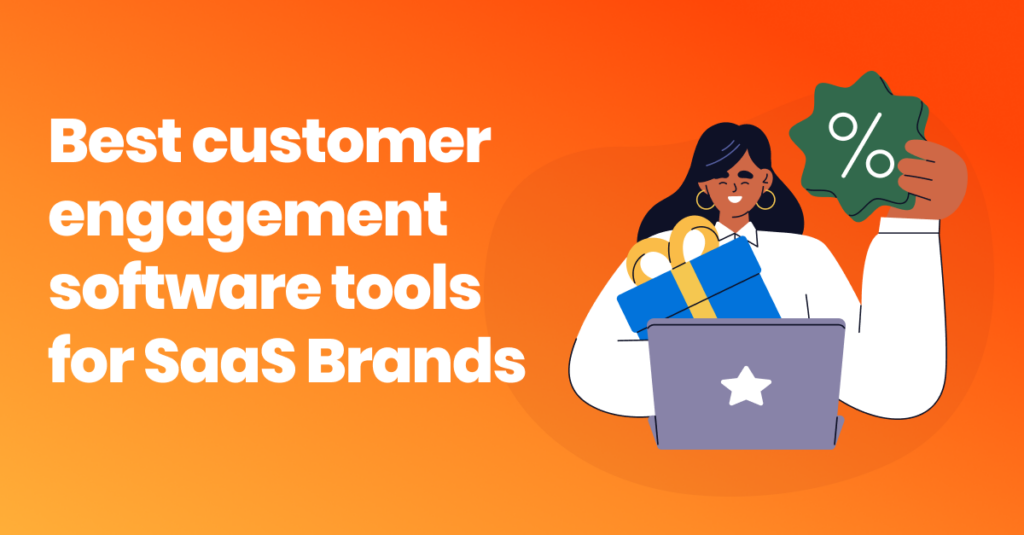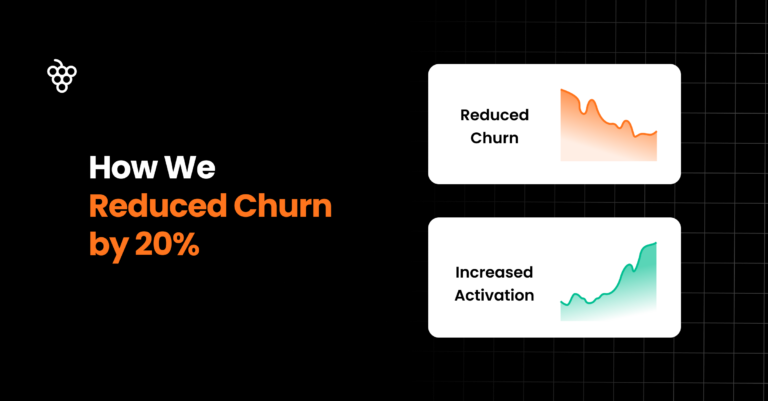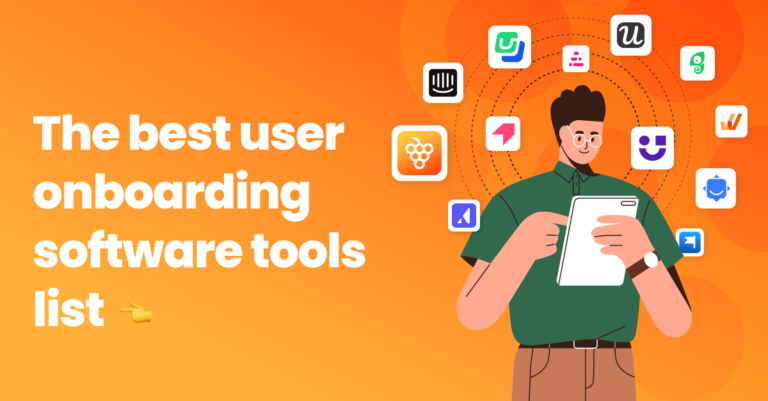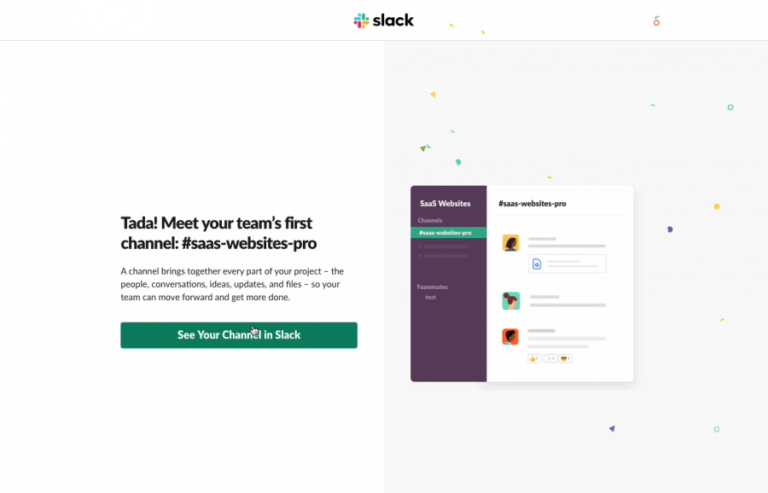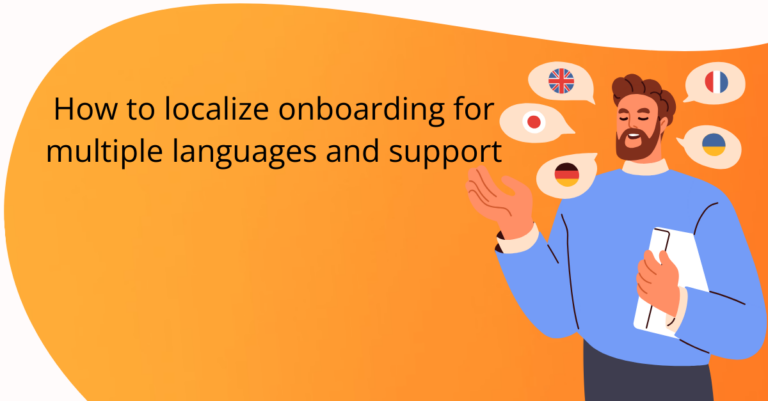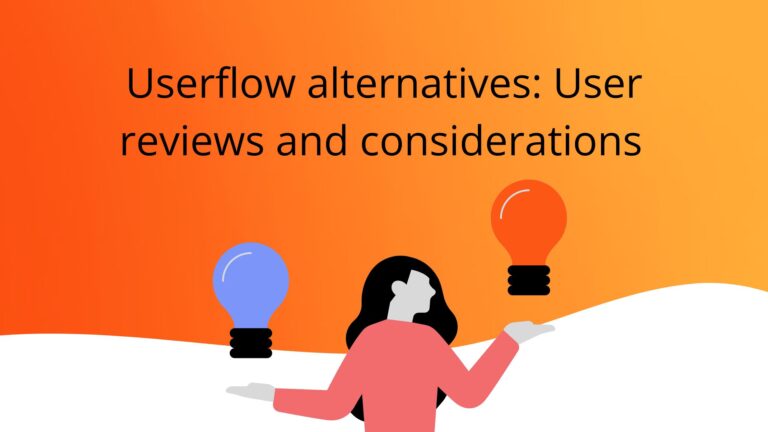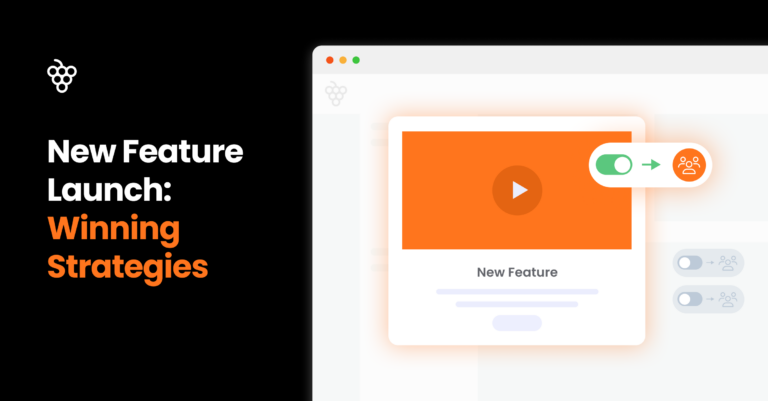Congrats, you’ve got new users signing up for your product! But can you make them stay? Getting people to try your SaaS or web app is just the beginning. The real challenge is keeping them from churning – that is where Customer Engagement Software Tools come into play.
According to SMSCountry, 74% of users would switch to a competitor if they found the SaaS product too difficult to use. Customer engagement tools are designed to flatten the learning curve and help users overcome friction to improve their experience, prevent user churn, and drive product adoption. And there are many other benefits brought by engaged customers:
- They generate, on average, 51 % more revenue and sales than disengaged customers
- Fully engaged customers spend 23 % more over their lifetime than average ones
- Engagement increases cross-sell revenue by 22 % and up-sell revenue by 38 %
(Source: BusinessDasher)
Below, we have compiled a list of the 15 best platforms for driving customer engagement, so check it out ⬇️
🍇Want to try out how you can engage your users with a killer onboarding or adoption flow? Check out Product Fruits now!
What is a customer engagement tool?
Customer engagement tools help businesses interact and retain users throughout the customer journey. They do this by tracking and managing users at multiple touchpoints, from traditional email to more advanced forms like in-app messaging and guided tutorials.
These tools help users understand and benefit from the product, leading to higher product adoption and contributing to the business’s growth.
Why should you use customer engagement software?
Keeping users engaged long enough to see their full value can be challenging. Here’s why customer engagement tools are essential and how they can help you overcome this:
Users Find It Hard to Use Complex Products: Many SaaS products have features that can confuse new users. Use an engagement tool that simplifies onboarding and helps users understand your product quickly, leading to faster adoption.
Keeping Users Engaged Over Time: Users often engage with a product initially and then become inactive, resulting in churn. These tools send personalized messages and push notifications to bring users back to the app and maintain engagement.
No Clear View of Customer Behavior: Product managers struggle to find what works and what doesn’t without clear insights into how users interact with the product. Use tools that provide detailed customer analytics about where users drop off and which features are most useful. This will help you improve features and create better engagement strategies.
Features to look for in customer engagement software
Personalization: Everyone loves it – whether it’s having your name on a Starbucks cup or a user onboarding flow. Look for tools that provide personalized messages, in-app announcements, and onboarding based on user behavior. This helps ensure that users get relevant and timely interactions.
Real-time engagement: Delayed responses can frustrate users and cause them to leave. While having a newsletter is considered a “must” these days, we suggest you also look for tools that offer features like in-app messaging, live chat, or real-time push notifications, allowing you to assist users right when they need help.
💡Find out how Flown aces in-product communication
Mobile-friendly interface: Many users access SaaS web-based products through their phones. Look for a fully optimized platform for mobile browsing so that features like push notifications, tutorials, and customer support work smoothly on PCs, tablets, and smartphones, ensuring users have a good experience no matter how they access the product.
Analytics and Reporting: You will probably use some form of analytics and reporting that shows user behavior and engagement trends so you can enhance your product and improve user experience. Some products offer a wider set of features, while others focus on core analytics related to their functions—in such cases, you may often use other analytics tools.
Robust Integration Options: Look for tools that integrate with your CRM, email marketing, analytics, and support systems to provide a consistent experience across different channels without dealing with multiple platforms.
In-app messaging tools
#1 Product Fruits
Best all-in-one Customer engagement tool for businesses.
We’re starting the list with our favorite because why permanently save the best for last? Product Fruits is a customer engagement platform trusted by 500+ SaaS companies worldwide.
It offers more than just in-app communication and announcements, and you can engage and help your customers with guided tours, which allow product managers to design smoother onboarding processes, enhance product adoption, and improve customer retention.
Key Features
Step-by-Step Product Tours: Create AI-powered guided walkthroughs that help users understand your software quickly.
Hints and Tooltips: Use hints, beacons, and tooltips to offer help, introduce new features, and answer common questions.
No-Code Design: Personalize onboarding and product tours to match your brand with our WYSIWYG editor.
Onboarding Progress Checklists: Track user progress in onboarding by showing completed steps and what’s still pending.
In-App Updates and Announcements: Share updates, new features, or important information directly in your software using pop-ups or news feeds.

Pros
- Product Fruits stands out from other customer engagement software with its AI-powered onboarding. In seconds, you can generate tours and walkthroughs automatically and tailor them to different user personas.
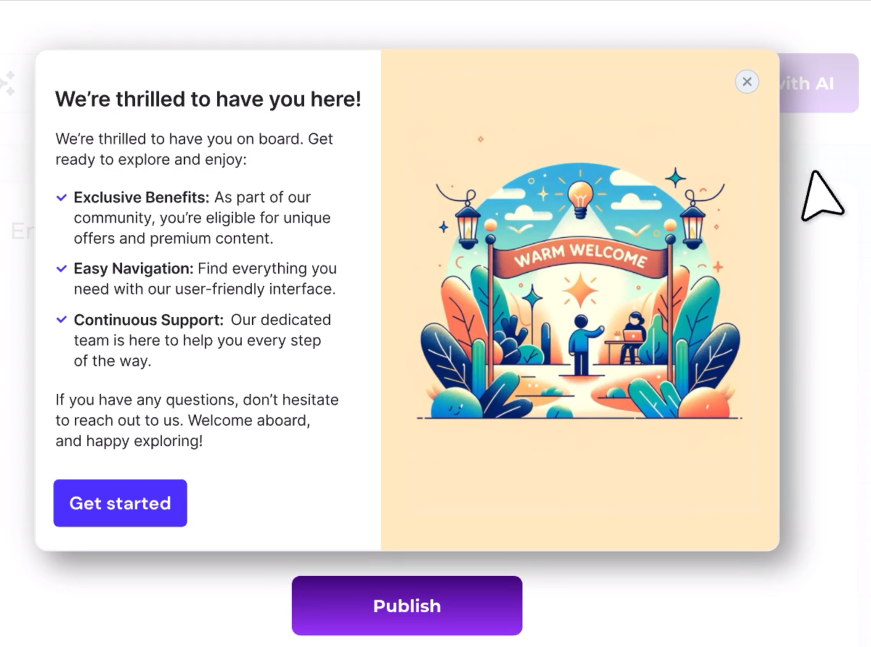
- You can also segment users and deliver timely, relevant messages based on specific user actions.
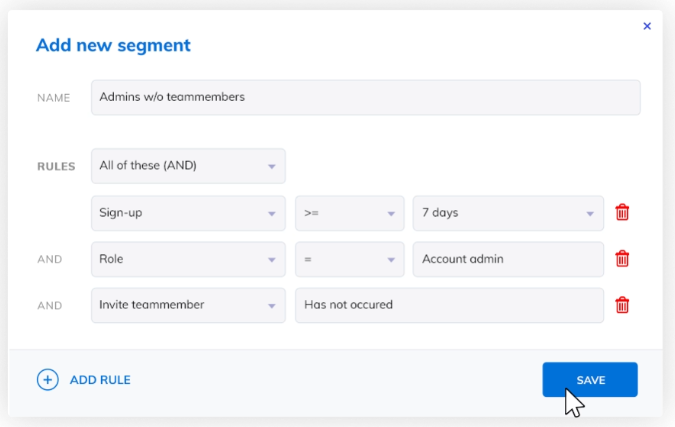
Source: Product Fruits
- Our user-friendly no-code editor lets you create interactive product tours, tooltips, and pop-up messages without technical expertise.
- You can also communicate with your customers using various formats, including images, videos, GIFs, and more, ensuring your messages are engaging and informative.
Cons
When we wrote this article, Product Fruits was somewhat lacking in analytics features compared to some of the other tools on the market. However, you can easily resolve this by integrating it with other analytics tools – some of which may already be in your tech stack!

Pricing
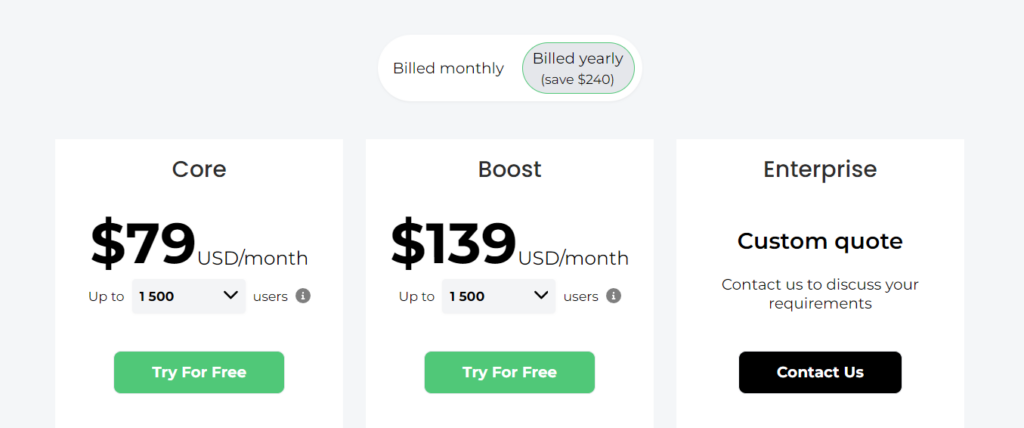
- Product Fruits core plan is perfect for startups and small teams and includes tours, checklists, hints, and basic integrations.
- Boost: $139/month (up to 1500 users). It is perfect for growing businesses and offers NPS surveys, custom events, AI writing assistance, and more.
- Enterprise: Custom quote with SAML SSO, custom integrations, and security audits!
Source: Product Fruits
#2 Appcues
Best for mobile user onboarding
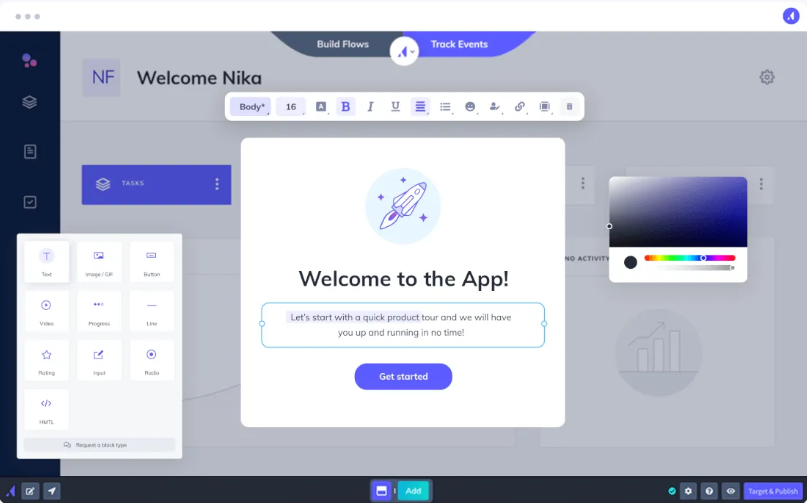
Appcues is a digital adoption platform that allows users to customize their onboarding through product tours and in-app guides without coding. It offers user segmentation, In-app onboarding flows, NPS surveys, and more features.
Pros
- Appcues is user-friendly with its easy-to-use interface and no-code solution for onboarding flows.
- Provides insightful analytics to help understand user behavior and interaction.
Cons
- Limited customization options for banners and pop-ups compared to other
platforms can be a drawback for companies with strict branding guidelines.
- Higher pricing may be less accessible for SMBs.
Pricing

The Essentials plan starts at $249/month and includes features like onboarding flows and basic analytics, whereas the growth plan starts at $879/month and offers custom pricing.
👀 Take a peek at how Appcues stacks up against Product Fruits
#3 Userpilot
Best no-code solution for enterprises
Userpilot is a no-code product growth platform that enables customers to create in-app experiences, track user behavior over time, and collect in-app feedback. It caters to medium-sized and large SaaS B2B companies and offers behavior-based triggers, flow builder, and user segmentation features.
Pros
- Userpilot offers a variety of UI patterns that teams can use to keep customers engaged. These include modals, checklists, tooltips, slideouts, banners, and hotspots.
- One of its standout features is the ability to create context-based tips, prompts, and checklists within your application, guiding users through essential workflows.
Cons
- Userpilot is relatively more expensive than some alternatives on the market.
- Limited integration options compared to its competitors.

Pricing

It starts at $249/month and includes essential features ideal for small teams.
👀Find out who wins between Product Fruits and Userpilot Email marketing tools
Email and marketing automation tools
#4 Mailchimp
Top Email Marketing Tool for Growing Businesses
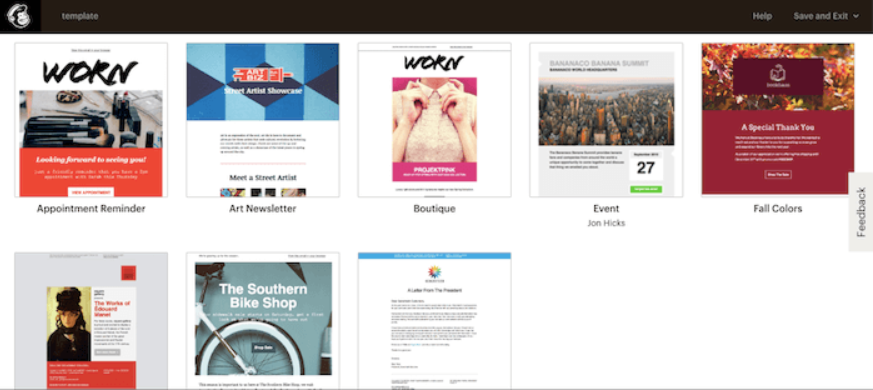
Mailchimp is an email and marketing automation platform for growing businesses. It allows you to engage customers through email, social media, landing pages, and advertising. It provides the tools to create, send, and track engaging email campaigns for your customers and subscribers.
Pros
- You can track everything from open rates to revenue generated.
- Its Multichannel Calendar lets you schedule and monitor your marketing campaign across various channels and platforms.
Cons
- Small businesses may find it too costly.
- Mailchimp charges for unsubscribed and inactive contacts in your database, which means you pay for individuals who don’t engage with your emails. This leads to unnecessarily high costs, especially for businesses with large email lists.
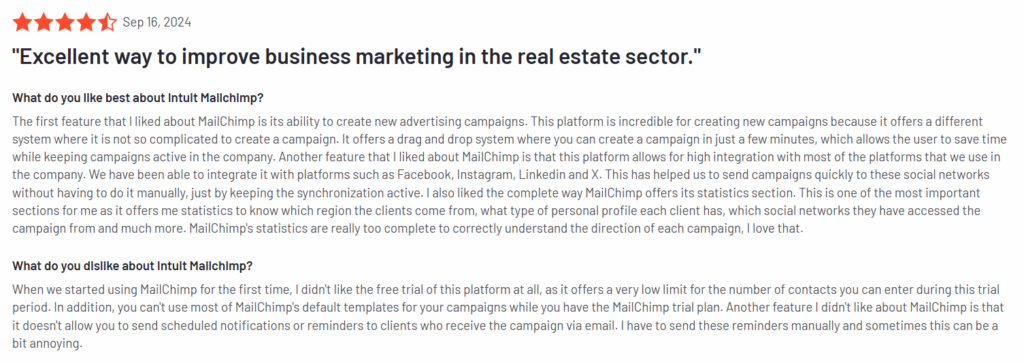
Pricing
Starts at $20 per month; however, prices and availability of free trials may vary based on your location
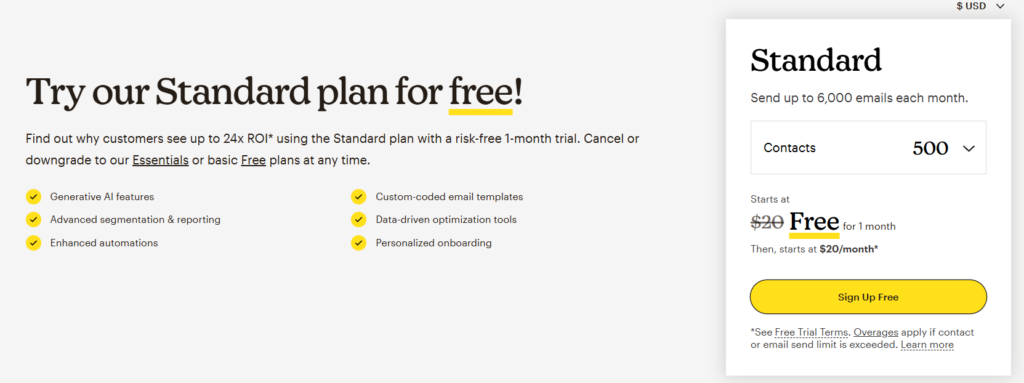
#5 ActiveCampaign
Best Marketing Automation Platform
ActiveCampaign is a marketing automation platform that offers strong email marketing, CRM, and sales automation tools. It is best for experienced email marketers who want to focus on automation.
Pros
- The platform is easy to navigate with a clean interface. You can find all the tools you need!
- Its built-in CRM helps sales teams automate tasks, track leads, and see real-time customer interactions.
Cons
- Some features, like predictive content and detailed data analytics, are only available with higher-priced plans.
- There is no free plan, just a free trial. Prices are generally higher than simpler email marketing services.
Pricing
It starts at $15 per month for up to 1,000 contacts.

Customer support tools
@ Product Fruits
Sure, other tools offer support features, but Product Fruits delivers much more. Product Fruits life-ring button acts as a 24/7 helpdesk within your app, allowing your users to find answers independently, reducing support tickets, and improving customer engagement.
Plus, it’s designed to make support instantly accessible, improving their experience from the first click!
#6 Intercom
Best AI Customer Service Platform
Intercom is a customer service platform for real-time messaging, support, and personalized customer experiences. It provides live chat, email, and in-app messaging tools for improved communication and engagement.
Pros
- Powerful live chat and automation options for instant support.
- Advanced segmentation and targeting for personalized messaging.
Cons
- Much steeper learning curve for new users.
- Limited email marketing features compared to other tools.
Pricing
Starts at $74 per month for basic live chat and support.
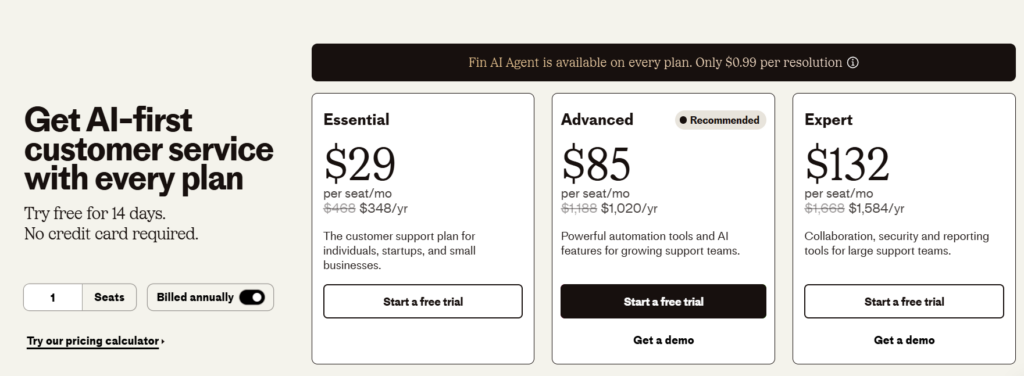
#7 Zendesk
Best customer service solution platform
Zendesk is a customer service platform that helps businesses manage support tickets, live chat, and knowledge bases across multiple channels. It’s designed to improve customer interactions and satisfaction through service and support automation.
Pros
- Easy-to-use interface with robust ticketing and tracking features.
- Supports multichannel communication, including email, chat, and social media.
Cons
- Limited customization options for workflows and integrations.
- Reporting and analytics are basic on the free plan.
Pricing
The Suite Team plan costs $49/month per agent, which covers essential support features.

Survey and feedback tools
@ Product Fruits
Product Fruits offers more than just standard feedback tools. With our feedback widget, customers can easily share insights, screenshots, or even videos directly within your app or on your website, with no coding required.
But we don’t stop there. Product Fruits also includes NPS (Net Promoter Score) and in-app surveys to gauge satisfaction and identify user needs directly on your app or site. These help you uncover the reasons behind churn and improve user retention, all of which are integrated into your product experience.
#8 SurveyMonkey
Most Popular Survey Platform
SurveyMonkey is an online platform for creating and sharing surveys. It can be used to collect feedback, conduct research, or measure customer satisfaction.
Pros
- The design is simple, making it easy for beginners to create and share surveys.
- It has many pre-made templates for different uses.
Cons
- The free and basic plans have limited customization. You must upgrade to access advanced question types, survey logic, and branding options.
- The design options may be less flexible compared to other tools.
Pricing
Starts at $25/user/month
#9 Survicate
Best NPS software
Survicate is a customer feedback platform that helps businesses gather insights with tools like website and mobile surveys, NPS, and email surveys. It allows companies to capture feedback throughout the customer journey, making it easier to improve customer satisfaction.
Pros
- Survicate provides various survey methods, including in-app, web, and email surveys, allowing flexibility in gathering customer feedback across multiple channels.
- The tool integrates with popular platforms like Intercom, HubSpot, and Slack, making it convenient to unify feedback data with other business processes.
Cons
- The free plan offers limited features and customization, which may restrict smaller businesses looking for more flexibility without upgrading.
- Some users find Survicate’s reporting features less detailed than other specialized analytics tools.
Pricing
Survicate offers a “good” plan for 99 EUR/mo and a free plan with basic survey features and limited responses.

Multichannel messaging and push communication
#10 Twilio
Best Business Communication platform
Twilio is a cloud-based communications platform that enables businesses to add messaging, voice, and video capabilities to their applications. It’s highly customizable, allowing for tailored customer engagement solutions across various channels, including SMS, email, and chat.
Pros
- Highly flexible API supports extensive customization.
- Multichannel support (SMS, voice, video, and chat) for comprehensive customer engagement.
Cons
- Requires technical expertise for setup and customization.
- Costs can increase rapidly with high usage.
- Lacks built-in CRM features compared to other engagement platforms.
Pricing
Twilio offers pay-as-you-go pricing, with SMS messages starting at $0.0075 per message and voice calls at $0.013 per minute, varying by location and usage. Email API pricing is based on volume and features.

#11 Moengage
Best Omnichannel Marketing Platform
MoEngage helps marketers in consumer brands. It allows businesses to connect with users through email, SMS, push notifications, and in-app messaging.
Pros
- Great for direct-to-consumer (D2C) and business-to-consumer (B2C) brands that want to personalize user engagement.
- Supports interactions across multiple channels, making communication easy.
Cons
- Teams new to data-driven tools may find it challenging to learn.
- The app can be slow when handling large amounts of data.
Pricing
MoEngage’s pricing isn’t publicly available on their website. They provide a free trial for evaluation.
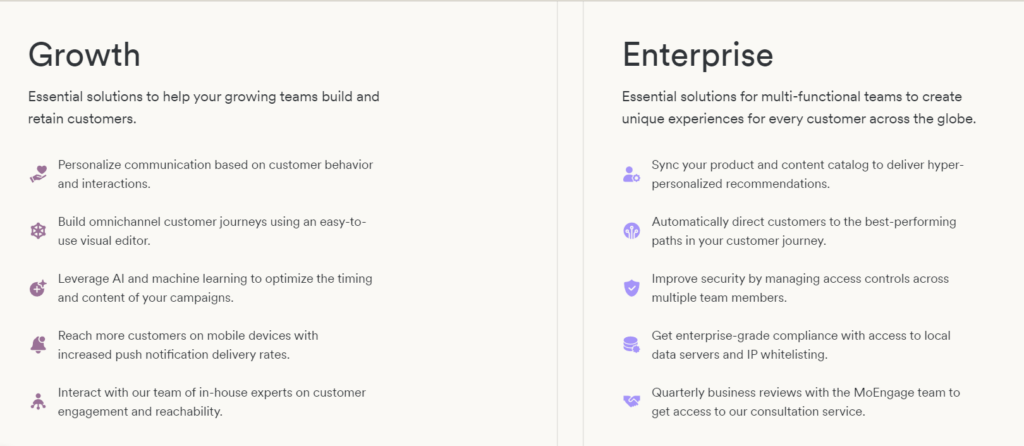
#12 OneSignal
Best Push Notification Tool
OneSignal helps companies of all sizes boost retention and revenue through fast, personalized messaging. It supports various channels, including email, push notifications, in-app messaging, SMS, Apple’s Live Activities, and more via Webhooks.
Pros
- User-friendly interface, accessible for developers and non-technical users to implement and manage.
- Reasonably priced options
Cons
- While OneSignal’s free plan is rich in features, its analytics options are basic, which may be limiting for businesses that require in-depth data.
- The SMS dashboard only tracks the number of app messages sent, not the specific segments.
Pricing
They offer a free plan and a growth plan starting at $9.

#13 Klaviyo
Best SMS and email Automation Platform!
Klaviyo is a marketing automation tool that helps businesses use their customer data. It connects with over 350 platforms to automate personalized email and SMS messages, assisting businesses in acquiring, engaging, and keeping customers.
Pros
- Powerful tools like email analytics, template examples, and content creation tools, allowing users to create customized campaigns.
- Two-way SMS conversations, in which customers can reach out to you at the same number you use to send them messages, make it easier to get feedback directly.
Cons
- Users often face delays in customer service responses, making resolving issues tricky.
- Some users find limited customization options, such as unavailable fonts and fewer advanced features, which restrict their branding efforts.
Pricing
Klaviyo has a free plan for up to 250 contacts. Prices increase as contact numbers grow, with about 10,000 contacts costing around $175 monthly. For businesses with over 175,000 contacts, enterprise pricing can go up to $2,000 monthly.
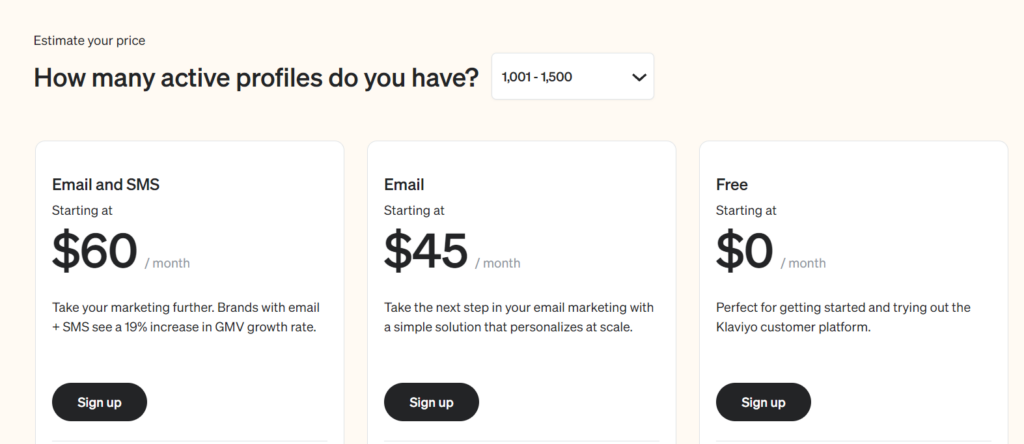
Customer experience management
#14 Qualtrics
Best Experience Management Software
Qualtrics is a cloud-based experience management software that helps you collect and analyze feedback on customer, employee, product, and brand experiences.
Pros
- Its simple interface makes it easy to create and manage surveys.
- You can distribute surveys through various methods, including the web, email campaigns, and static links.
Cons
- Some users have reported slow performance when working with large amounts of data, which can delay analysis.
- The platform has few design options, which may restrict creativity in survey creation.
Pricing
You need to contact their sales team to get a custom quote.
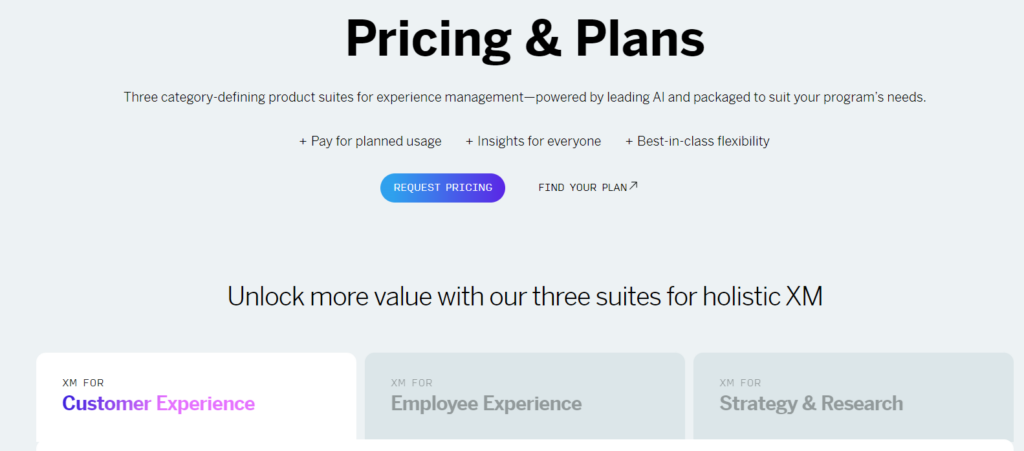
#15 Airship
Best Customer Experience Platform
Airship is known for its mobile messaging capabilities. It allows businesses to reach customers through push notifications, SMS, email, and in-app messaging. Its key features are cross-channel journeys, no-code experiences, and app store optimization.
Pros
- Segmentation allows precise targeting, helping businesses reach specific user groups with customized messages.
- Insight into user behavior, message performance, and campaign success
Cons
- New users may find it complex to set up and navigate, which can lengthen onboarding time.
- Premium pricing structure can be cost-prohibitive for small and mid-sized businesses seeking more affordable solutions.
Pricing
Airship offers a free plan with limited features for small-scale engagement. It doesn’t list its pricing publicly for the Essentials and Enterprise plans.
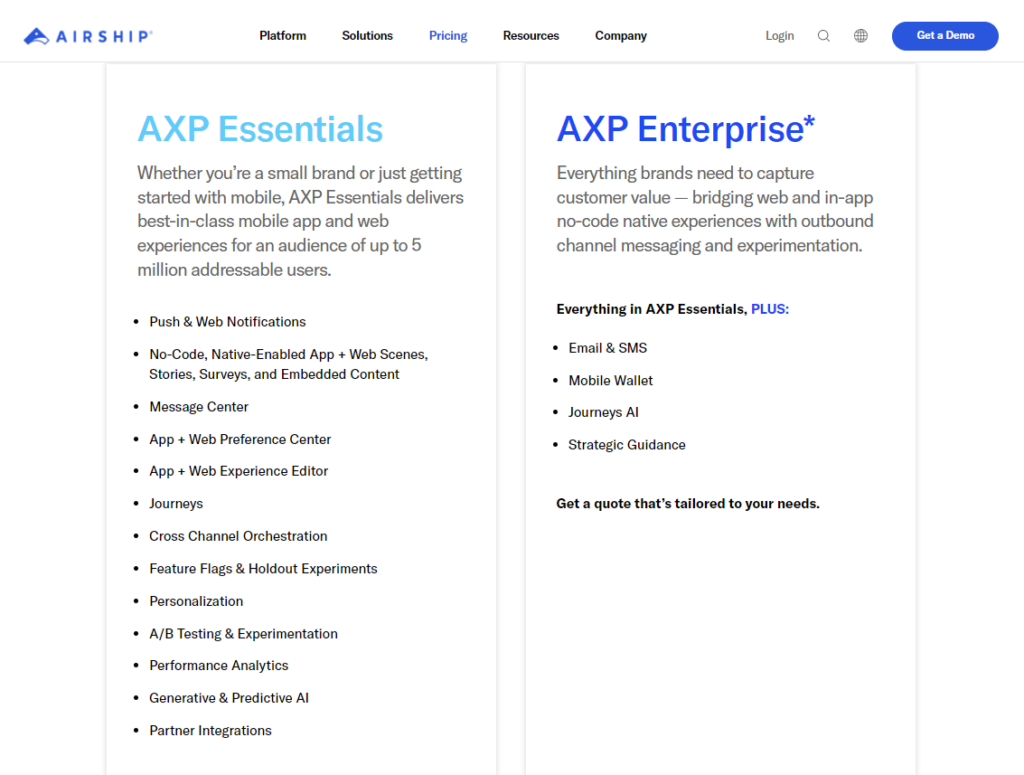
Choose the best customer engagement tool today.
We’ve given you a list of the types of tools you’d need to build customer engagement, from email to user onboarding and customer support. But why invest in different tools when you can have a complete solution that drives engagement, adoption, and growth in one place?
Choosing the best customer engagement platform today means avoiding separate tools for each function. Consider an all-in-one solution like Product Fruits. It combines everything you need, from onboarding and in-app guidance to real-time feedback and NPS surveys, into one platform.
